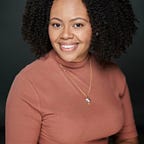Sylvia Mendez
Civil Rights Activist and Nurse who was awarded the 2011 Presidential Medal of Freedom
Sylvia Mendez was born in 1936 in Santa Ana, California to Gonzalo Mendez, a Mexican activist and agricultural business owner, and Felicitas Gómez Martínez de Mendez, a Puerto Rican farmer and activist. Shortly after Mendez’ birth they moved to Westminster, California, where her parents leased farmland from a Japanese-American family who had been ordered to an internment camp during World War II. Even without formal Jim Crow laws, 1940s social life in Southern California remained segregated. Restaurants would post “No Dogs or Mexicans Allowed” signs, movie theaters forced Mexicans to sit in the balconies, and public pools opened for Mexicans only once-per-week and were drained before white residents could use them again. Despite her father speaking fluent English, Sylvia would endure these experiences as a young girl.
The Westminster School District in Orange County had only two schools with segregated campuses for white and Hispanic students. The Hispanic school was described as “a terrible little shack” that had no playground and was next to a cow pasture with an electrified fence. Sylvia recounted how “we weren’t taught how to read and write. We were taught home economics, how to crochet and knit.” Although Sylvia’s cousins with lighter skin complexions and French last names were permitted to attend the white school, she and her two brothers were not. Sylvia’s parents hired legal representation and in coordination with other Mexican-American parents in the community, filed a class action suit against the county. Mendez v. Westminster was brought to the California Federal District court in 1946 and became the first case in U.S. history to rule on desegregation. The case laid the groundwork for Brown v. Board of Education in 1954, forced Orange Country schools to integrate, ended California’s de jure segregation efforts of Latinos, Indians, Chinese, Japanese, and Mongolian children in the state at that time, and is recognized as central to California Chicano history.
Sylvia has recounted her experience attending school following her parents’ lawsuit:
“we go out to play and this little white boy comes up to me and he says, ‘you are Mexican, what are you doing here? Mexicans aren’t supposed to be in this school’…and I started crying, crying and crying…and it hit me…and I didn’t wanna stay there…” She ran home to her mother to tell her as much. Felicitas Mendez would have none of it. She told Sylvia, “Que no sabes porque estabamos peleando?…Aren’t you aware what we are fighting for? We are fighting for you so you can feel just as equal, so you could feel just as good as he is…” — Center for Puerto Rican Studies
Sylvia went on to attend Orange Coast Community College where she earned her Associate of Arts degree in nursing, and later her Bachelors of Science in Nursing and a Certificate in Public Health from California State University at Los Angeles. She worked as a pediatric nurse for 33 years at the Los Angeles University of Southern California Medical Center and became the Assistant Nursing Director of the Pediatric Pavilion.
Sylvia was awarded the Presidential Medal of Freedom in 2011 and received a Honorary Degree of Doctor of Humane Letters from Brooklyn College of The City University of New York in 2012. Her story is so far recounted in three books Sylvia and Aki (2013), Separate is Never Equal (2014), and The Kindness of Color (2021). She continues to recount her lived experience and several California schools have been re-named after her.
Sources
The information above was sourced from the LA Times, Constitutional Rights Foundation, Pulso, Duke University, U.S. Courts, Sylvia Mendez, Latino USA, and Hunter College.
Learn More
To learn more about inclusion in nursing and be part of the national discussion to address racism in nursing, check out and share the following resources:
Know Your History
- Nursing CLIO to engage with historians and scholars committed to deep work around historical accuracy in healthcare and nursing.
- American Association for the History of Nursing to attend monthly webinars on topics of nursing history, view the calendar here.
Examine Bias
- NurseManifest to attend live zoom sessions with fellow nurses on nursing’s overdue reckoning on racism or to sign their pledge.
- Breaking Bias in Healthcare, an online course created by scientist Anu Gupta, to learn how bias is related to our brain’s neurobiology and can be mitigated with mindfulness.
- Revolutionary Love Learning Hub provides free tools for learners and educators to use love as fuel towards ourselves, our opponents, and to others so that we can embody a world where we see no strangers.
Support & Advocate
- National Coalition for Ethnic Minority Nurse Association to stay engaged with topics relevant to nurses of color.
Help us paint the internet with nursing’s diverse origin stories. Follow this Medium publication, NursesYouShouldKnow on Instagram, LinkedIn, or Facebook, or @KnowNurses on Twitter to share and re-post our articles far and wide.
